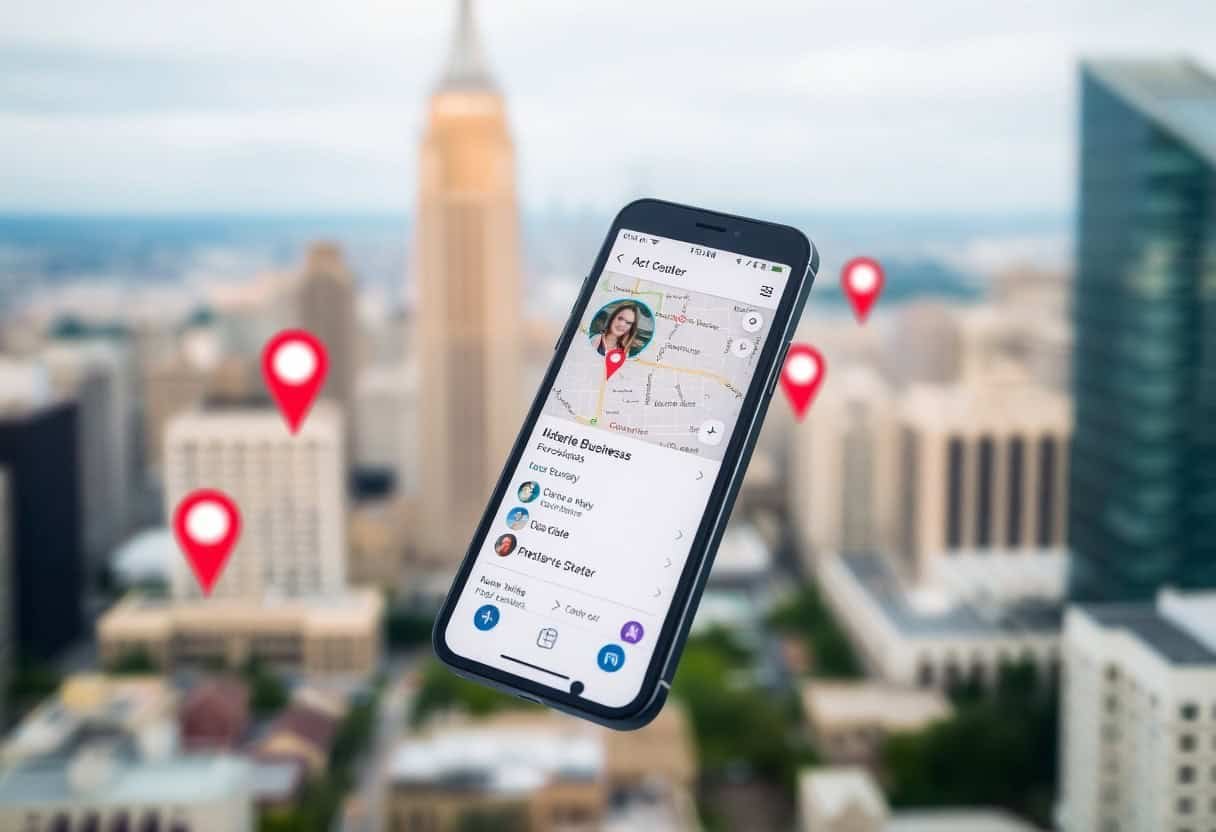With the rise of online services and remote businesses, you may be wondering if local SEO is necessary for your enterprise, even without a physical storefront. Local SEO helps enhance your online visibility within specific geographic locations, making it easier for potential customers to find your services. By understanding how local SEO can benefit your business, you can make informed decisions that attract more clients and improve your digital presence, regardless of where your operations are based.

Key Takeaways:
- Local SEO can enhance visibility for businesses that serve specific regions or target local customers, even without a physical location.
- Incorporating local keywords and creating content relevant to the local audience can improve online presence and attract potential customers.
- Leveraging local online directories and platforms can help build credibility and connect with community-based consumers.
The Digital Landscape: Why Local Matters for All Businesses
In today’s interconnected world, local SEO serves as a vital component for businesses of all sizes, enhancing their digital presence regardless of physical locations. Even if you operate remotely, optimizing your online visibility for your target geographic area connects you to potential customers seeking localized services and products. This strategy helps you stand out in a crowded marketplace and ensures you reach your ideal audience effectively.
Unpacking Local Authority in Online Spaces
Building local authority online involves establishing your brand as a trusted resource within specific geographical regions. Engaging with local communities through social media, local content, and partnerships can enhance your credibility. By positioning yourself as an expert relevant to local nuances, you differentiate your brand and establish a stronger connection with your audience.
How Local Exposure Increases Visibility and Credibility
Increasing local exposure enhances your credibility while amplifying your visibility among target consumers. You become part of localized conversations and keyword searches, driving more relevant traffic to your website. Customers often prefer brands that reflect their geographic context since this familiarity fosters trust and leads to higher engagement and conversion rates.
Local exposure not only boosts visibility but also encourages trust by aligning your business with the community values of your target audience. For instance, local testimonials and reviews can significantly impact consumers’ decisions, as many regard reviews from nearby customers as more relatable and trustworthy. You can enhance your visibility by participating in local events or sponsoring community initiatives, further solidifying your presence in potential customers’ minds. When your brand is recognized within specific regions, it paves the way for stronger customer relationships and lasting loyalty.
Customer Behavior Trends: Searching Local Without a Location
More consumers are conducting online searches with a local intent, even if they don’t plan to visit a brick-and-mortar location. This shift demonstrates a growing reliance on nearby resources for services, products, and information. You may operate entirely online, yet local SEO is vital as it allows your business to capture customers who prefer to engage with businesses in their vicinity, enhancing your visibility in relevant searches.
The Rise of “Near Me” Searches and Their Implications
“Near Me” searches have surged in popularity, reflecting a desire for immediate solutions close by. This trend indicates how users increasingly seek services that position them geographically, leading to an expectation of local options even from businesses without physical locations. Adapting to this change by optimizing your website for local queries can yield increased traffic and engagement.
The Importance of Geographic Relevance for Non-Physical Businesses
Geographic relevance plays a significant role in local SEO for businesses without a physical presence. By targeting local keywords and creating location-specific content, your online presence becomes more aligned with potential customers’ needs, even if they never enter a physical store. Tailored marketing strategies can foster trust and connection with local audiences, driving traffic and conversions.
Generating geographic relevance involves more than just adding a city name to your website. Incorporating local keywords in your content and meta tags, claiming listings on local directories, and engaging with local social media groups can enhance your visibility. For example, if you offer freelance graphic design services, discussing design trends specific to local events or businesses can attract attention from local clientele, positioning you as an expert in the area while driving targeted traffic to your site.
Competing in a Crowded Market: Leveraging Local SEO
In a saturated marketplace, leveraging local SEO can differentiate your business from competitors. By optimizing for local search, you capture attention from users engaged in location-specific queries, even if you operate solely online. As local intent intensifies among consumers, businesses that align their digital strategies to local realms can gain significant advantages in visibility and relevance, driving more targeted traffic and enhancing engagement.
Strategies for Enhancing Visibility in Location-Sensitive Searches
To boost visibility in location-sensitive searches, implement localized strategies like optimizing your website with location-centric keywords, using Google My Business even without a physical location, and generating local backlinks. Engaging with community events or local online forums can also establish your presence, while consistent NAP (name, address, phone number) information across platforms enhances credibility and searchability.
The Advantages of Localized Content and Keywords
Localized content and keywords provide tailored relevance to your target audience, improving engagement and driving more organic traffic. This strategy enhances your authority in specific niches and increases the likelihood of conversions due to its targeted nature.
Localizing your content helps you tap into specific community interests and needs, making your offerings more relatable. For instance, a digital marketing agency targeting small businesses in Austin can create blog posts discussing local SEO trends pertinent to that demographic. This not only improves search rankings but fosters trust and loyalty among local customers, ultimately leading to a higher return on investment. By incorporating local keywords, you not only enhance visibility but also connect authentically with a more relevant audience.
Tools and Techniques for Effective Local SEO
Integrating the right tools and techniques is imperative for optimizing your local SEO strategy. Utilizing keyword research tools helps identify local search terms relevant to your business, while local SEO platforms can streamline your online visibility across various directories. Consistent tracking of your analytics ensures you understand customer behavior, enabling you to adapt your strategies effectively. Implementing schema markup enhances search engine understanding of your services, further solidifying your local presence. These methods create a solid foundation for improving your local search rankings, even in the absence of a physical location.
Harnessing Online Directories and Listings
Online directories and listings serve as vital resources for enhancing local SEO. By claiming and optimizing your business profiles on platforms such as Google My Business, Yelp, and Bing Places, you can boost your visibility when potential customers search for services related to your industry. Ensure that your business name, address, and phone number (NAP) are consistent across all listings to improve search engine credibility. Including accurate and engaging descriptions, categories, and links to your website can further attract local traffic and drive conversions.
Utilizing Reviews and Testimonials to Build Local Trust
Customer reviews and testimonials significantly influence local trust and credibility. Encouraging satisfied customers to leave positive feedback enhances your online reputation and helps potential clients choose your services over competitors. Responding to reviews, both positive and negative, demonstrates your commitment to customer satisfaction, fostering trust and loyalty. Actively showcasing testimonials on your website and social media can further establish your authority in the local market, leading to increased customer inquiries and conversions.
Statistics indicate that 84% of people trust online reviews as much as personal recommendations. By managing your online reputation effectively, you encourage more potential customers to engage with your business. Incorporate read-sourced reviews right on your website or marketing materials to directly connect with prospective customers. Highlighting specific aspects of customer experiences can enhance relatability and address common concerns, ultimately positioning you as a trustworthy choice in your industry. Building a strong review presence not only builds local trust but also strengthens your overall brand image.

The Future of Local SEO in the Digital Marketplace
Local SEO is evolving rapidly, driven by the increasing importance of online visibility in a competitive digital landscape. Businesses without physical locations can leverage local SEO strategies to enhance their online presence, drawing in customers through localized content, targeted keywords, and strategic social media engagement. As more consumers search with local intent, optimizing for local search signals becomes imperative, positioning your business to capture relevant traffic and maintain a competitive edge.
Emerging Trends and Their Impact on Non-Physical Businesses
New technologies are reshaping how consumers find services online, including the rise of voice search and mobile-centric browsing. These trends create opportunities for non-physical businesses to utilize localized keywords and optimize for conversational queries. Adapting to these changes not only enhances visibility but also aligns your offerings with the evolving expectations of target audiences.
Preparing for Changes in Consumer Behavior and Technology
Consumer behavior is shifting towards more digital interactions, compelling businesses to refine their local SEO strategies accordingly. You must stay informed about emerging technologies, such as AI-driven search algorithms and predictive analytics, to tailor your approach. By leveraging these advancements, you can ensure your content remains relevant and accessible, meeting the needs of your consumers effectively.
As consumer behavior increasingly favors convenience and personalization, optimizing your online presence to reflect these preferences is imperative. For instance, incorporating long-tail keywords related to local interests can enhance discoverability. Similarly, utilizing tools like Google My Business for business listings, even without a physical location, can build trust and visibility. Regularly analyzing data on consumer interactions helps you fine-tune your strategies, enabling you to stay ahead in an ever-evolving marketplace.
Summing up
From above, it’s clear that even without a physical location, local SEO can significantly enhance your online visibility and connect you with a target audience in specific geographical areas. By optimizing your content for local searches, you can attract customers who are more likely to engage with your business. This strategy not only promotes your brand but also drives traffic to your website, ultimately supporting your overall marketing efforts and growth. Embracing local SEO can give you a competitive edge in a crowded digital landscape.
FAQ
Q: Does my business need local SEO if I don’t have a physical location?
A: Yes, local SEO can still benefit your business by improving visibility in local search results and attracting customers in specific geographical areas, even if you operate online.
Q: How can local SEO help an online-only business?
A: Local SEO helps online businesses by optimizing listings on platforms like Google My Business and focusing on local keywords, which can increase traffic from potential customers searching for services or products in their area.
Q: What are some local SEO strategies for businesses without a physical location?
A: Strategies include creating location-specific content, optimizing your website for local keywords, engaging on local social media platforms, and obtaining reviews from local customers to enhance online reputation.

